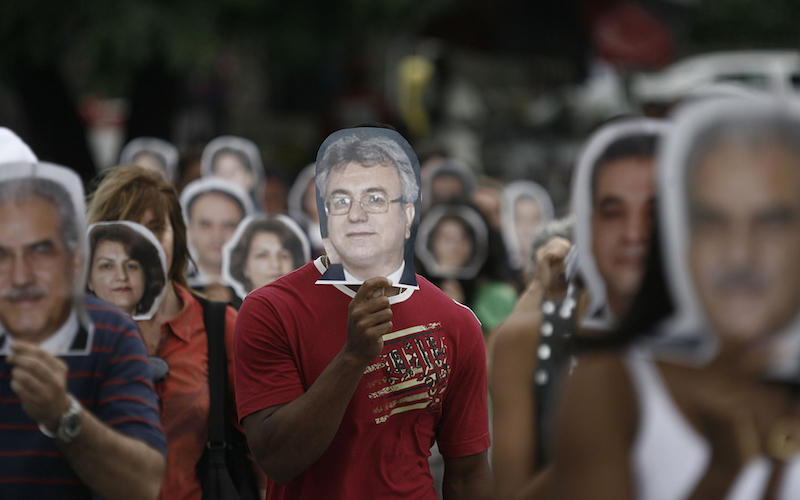Source: www.intpolicydigest.org
By Reza Afshari

As Iranian President Hassan Rouhani prepares to address the UN General Assembly for the fourth time – and the last time before the next Iranian presidential election in 2017 – I cannot help but notice that he has largely failed to make good on his campaign promises to uphold human rights in Iran. This is particularly true for Iran’s Bahá’í community, the largest religious minority in the country and the favorite target of the regime.
I have often thought that I will know freedom in Iran when my Baha’i compatriots are free. The story of Iran’s Baha’i community is, in many ways, the story of the struggle for human rights in Iran. Since the Islamic Revolution of 1979, Baha’is have been brutally repressed. The Iranian government has executed over 200 Baha’is, imprisoned thousands, denied them jobs, barred them from higher education, desecrated their cemeteries, and razed their holy places to the ground. Baha’is are persecuted from birth to death.
It would be easy to conclude that this persecution is simply a function of the clerics’ blind hatreds, rooted in primordial religious prejudices. This is no doubt an important factor, but the story is more complex. The Iranian people have also been complicit in the repression. While any state is capable of abusing its citizens, the prejudices of ordinary Iranians allowed abuses against Baha’is to go unchecked.
Before the Revolution, when Baha’is enjoyed relatively greater freedom, they still faced widespread discrimination and social hostilities from their fellow citizens, who perpetrated periodic pogroms and mob violence against them. For many years after the Revolution, when government persecution intensified, Iranians remained silent. The “othering” of Baha’is was so pervasive – due in no small part to the fact that they had, for decades, been maligned as foreign spies and members of a deviant cult, first by the clerics under the shahs and later by the regime’s hate propaganda, and had been scapegoated for all manner of political and economic problems – that even human rights activists would not speak up for the Baha’is.
Fortunately, the tide has begun to turn. Of course, several dozen Baha’i prisoners of conscience remain behind bars, including the seven leaders of Iran’s Baha’i community. Baha’is are still excluded from public sector employment and private employers are pressured not to hire them – and in recent years, the government has also begun shutting down Baha’i owned businesses in an effort to ensure the community is impoverished. Meanwhile, Baha’i schoolchildren are harassed, Baha’is are still excluded from the university system, and Baha’i cemeteries are desecrated. The plight of the Bahá’ís is a reminder that, even as Iran opens for business in the wake of the nuclear deal, the human rights situation remains unacceptable.
Yet, change is afoot. Iranians have begun “privatizing” Islam, sidestepping the stern ayatollahs and growing increasingly concerned about social justice. The state’s implacable opposition to individual freedom has increased appreciation for such freedom. In retrospect, the Islamic Republic has been paradoxically cathartic, clearing away some cultural lethargy that had clogged Iran’s political pathways to modernity and sparking a discourse around and acceptance of democracy and human rights. Large segments of the Iranian people have learned a great deal in the past three decades, and many of them now boldly stand up for the rights of Baha’is and other persecuted groups. They recognize that Iran’s Baha’is have survived immense suffering, and they are proud of the Baha’i community’s endurance and resilience.
But there is a long way to go. The voices of Iranian Baha’is have been reverberating in my ears for more than three decades, and I am more convinced than ever that the treatment of Iran’s Baha’is is the bellwether of society’s acceptance of human rights norms and of the state’s willingness to enforce them. When the rights of Baha’is improve, the rights of all Iranians will improve. As western corporations clamor to do business in Iran, and as President Rouhani prepares to offer more suave rhetoric to diplomats in New York, we would do well to remember the Iranian people, who continue to live under a regime that denies them their basic human rights.
Leave a Reply